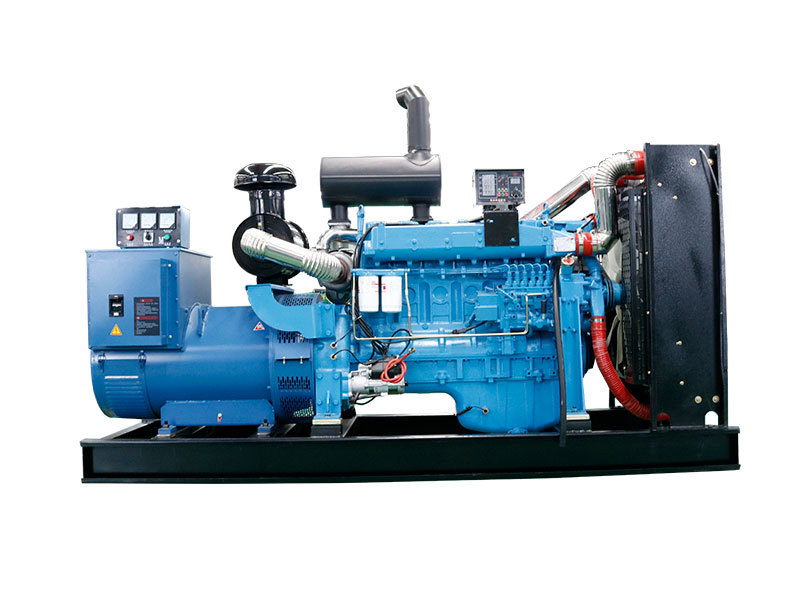Choosing between a new and used generator set is a significant decision, often driven by budget, power needs, and long-term goals. It's a complex equation with several factors to consider, and jumping to conclusions can lead to costly mistakes. So, let's unpack the key differences and explore the scenarios where one option clearly outshines the other.
New generators offer the peace of mind that comes with a warranty, cutting-edge technology, and predictable performance. You're getting the latest advancements in fuel efficiency, emissions control, and noise reduction, often packaged with convenient features like remote monitoring and automatic start. This translates into lower operating costs, reduced environmental impact, and a hassle-free experience. But the upfront price tag can be a significant hurdle for some.
Used generator sets, on the other hand, represent a potentially substantial cost saving. This makes them attractive for budget-conscious buyers or for temporary applications where a short-term power solution is needed. However, buying used carries inherent risks. The generator's history, maintenance records, and overall condition are critical factors that can significantly impact its reliability and lifespan.
Factors to Consider When Choosing
Budget and Long-Term Costs
Perhaps the most obvious differentiator is the initial cost. New generators carry a premium, while used generators offer a more affordable entry point. However, consider the long-term picture. A new generator’s higher efficiency and warranty protection could result in lower operating and maintenance costs down the line, potentially offsetting the initial price difference over time.
Power Requirements and Application
Defining your precise power needs is crucial. Will you be powering a small home during an outage, a large construction site, or a critical facility? For continuous or demanding applications, the reliability of a new generator often justifies the investment. For occasional or short-term use, a carefully inspected used generator might suffice. Think about your specific usage scenario; a weekend camping trip has very different power needs than a backup system for a hospital.
Features and Technology
New generators incorporate the latest technology, offering features like advanced control panels, remote monitoring capabilities, and quieter operation. These features can enhance convenience, efficiency, and overall user experience. Used generators, depending on their age and model, may lack these modern advancements. Consider which features are essential for your application and prioritize accordingly.
Inspecting a Used Generator: Key Considerations
Maintenance History and Running Hours
A well-documented maintenance history is essential when considering a used generator. Look for records of regular oil changes, filter replacements, and other routine maintenance. Low running hours are generally preferable, indicating less wear and tear. Think of it like buying a used car; you'd want to know its service history.
Physical Inspection and Testing
Before committing to a used generator, conduct a thorough physical inspection. Look for signs of damage, corrosion, or leaks. Ideally, have a qualified technician perform a load test to assess its performance under real-world conditions. This is crucial for verifying the generator’s output and identifying any potential issues.
The Warranty Advantage of New Generators
One of the most compelling arguments for buying new is the comprehensive warranty. This provides valuable protection against manufacturing defects and premature failures, offering peace of mind and potentially saving significant repair costs down the line. Used generators typically come with limited or no warranty, leaving you responsible for any repairs that might arise. Is the cost savings worth the risk of unexpected repairs?
Making the Right Choice for Your Needs
Ultimately, the best choice between a new and used generator depends on your individual circumstances. For applications where reliability is paramount, such as backup power for critical systems, a new generator is often the preferred option. For budget-conscious buyers or temporary power needs, a well-maintained used generator can be a cost-effective solution. Carefully weigh the factors discussed above to make an informed decision.
Considering Fuel Options and Efficiency
Fuel efficiency plays a critical role in the long-term operating costs of a generator. Newer models often feature advanced fuel injection systems and other technologies that optimize fuel consumption. Used generators might lack these advancements, potentially leading to higher fuel costs over time. Think beyond the initial purchase price and factor in the ongoing cost of fuel.
Conclusion: Balancing Cost and Peace of Mind
The decision between a new and used generator set hinges on striking the right balance between upfront cost and long-term value. A new generator offers peace of mind, advanced features, and warranty protection, while a used generator can provide significant cost savings if chosen carefully and inspected thoroughly. By understanding your power needs, budget constraints, and the inherent risks and rewards of each option, you can confidently select the generator that best meets your requirements.





